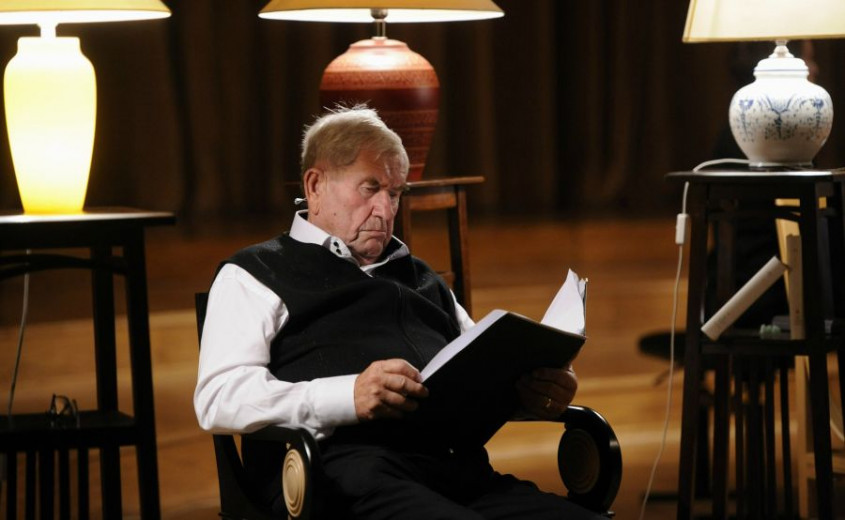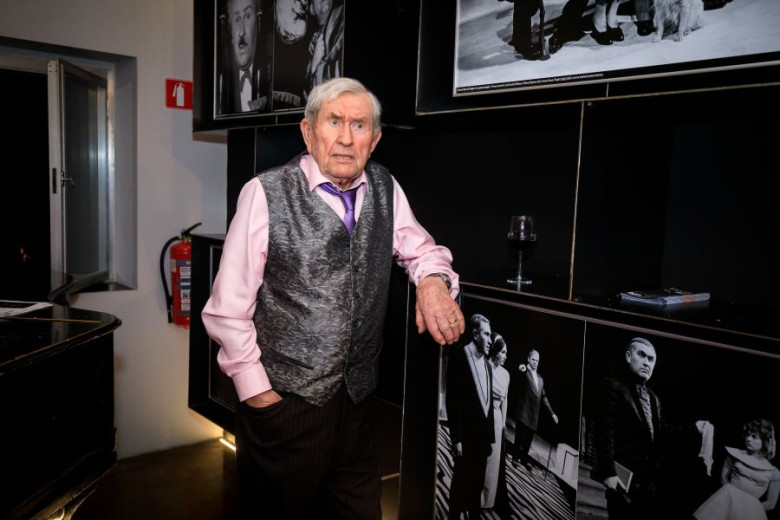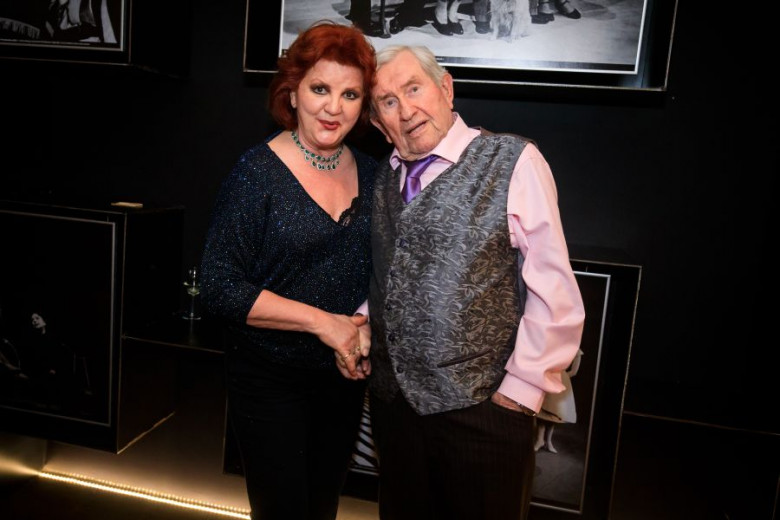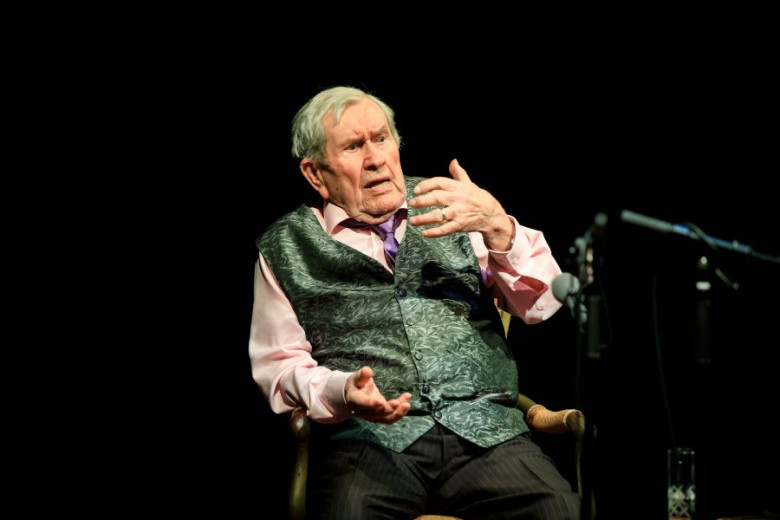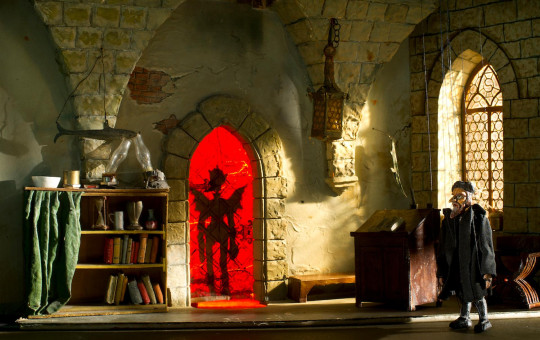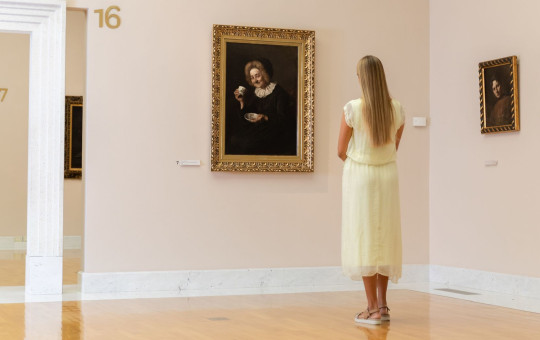He is seen as a sometimes misunderstood actor. "Artists think differently than most people. We see things that other people do not," he says. His generation of actors did not get along. Only one was allowed to be the champion, and every single one of them strived to be The One, which in turn led to competition and conflicts. Before Souček, the reigning champion was Stane Sever, then his colleague Polde Bibič.
"People still find it difficult to deal with competition and place too much emphasis on one person, as though only one can be good, and people continually fight over who is the best. There are no best ones; you are either good or not good! There is no other possibility."
His complex interest in theatre steered him towards directing, and becoming a herald of the theatre avant-garde.
Throughout his career he has played some 150 theatrical roles, including some really memorable ones. He created more than 600 roles on the radio, and most people know him for his incredible ability of interpretation using a diverse range of voices, and for the famous characters he created when dubbing cartoons.
He received the Borštnik Ring Award in 1994, the Viktor Lifetime Achievement Award in 2005, and the Ježek Lifetime Achievement Award in 2018.
No one has left so much warmth in the hearts of young viewers as Jurij Souček
He began with "Maya the Bee", where he was Flip the Grasshopper, then he lent his voice to cartoons such as "Jamie and the Magic Torch", "Maxidog Fik", and "The Water Sprite Rákosníček", but most remember him for the role in "Piggeldy and Frederick", even though one of his favourite characters is Josip Ribičič’s "Mouse Mishkolin". Children know his voice from many famous cartoon characters and radio dramas, and adults from a varied range of radio characters.
While it was the jury’s opinion that he built his unique image as an actor with his original visual interpretation, Souček’s work in cartoon dubbing represents a special chapter in his career.
No one has left so much warmth in the hearts of young viewers as Jurij Souček has, as the characters who were brought to life by his velvety voice were so vivid, and his linguistic bravura so humorously ingenious, that children could see the story even if no pictures were present.
What does it mean to him to be an actor?
"It means everything. Already as a child, I felt it was my calling to become an actor. I loved performing. I sang well and played the violin. I was a happy child, and I am still keeping this happiness alive now that I am ninety years old. I regret that today, the requirements for actors are different than what they used to be. Today, the focus is no longer on the voice. If you do not have it, they can enhance it with a microphone. In my time, a good voice was the condition to get the job; now this is no longer necessary."
Frane Milčinski Ježek Lifetime Achievement Award
"With the same zeal and deliberation of a relentless explorer of the theatre, Souček also enthusiastically embraced new media and joined creative groups at Slovenian National Radio at the very beginning of his career, co-developing a specific sound image for the original Slovenian Radio Drama, as well as Slovenian National Television, at the time of the latter’s experimental start more than 60 years ago," the jury wrote in its reasoning for the Frane Milčinski Ježek Lifetime Achievement Award, which Souček received a year ago.
"His radio opus is one of the most extensive ones in the history of Slovenian radio. His contribution to radiophonic art is invaluable, in terms of both scale and diversity. Souček’s first TV appearances date back to 1958, where he can be seen in skits alongside Frane Milčinski Ježek. In the last six decades he has become one of the most recognisable faces and voices of Slovenian television," the text added. For decades, he worked in both media as an actor and performer, author of texts and adaptations, and occasionally as a director.
A great opera lover
As a boy during the war, he regularly visited opera shows, admitting that this was also partially because the ticket served as a curfew pass. His wife, Milena Morača, is a renowned opera prima donna. They met in Maribor, where he directed "The Lysistrata". "Sometimes, the relationship between two renowned artists can be a little difficult, but this gives life its flare," says Souček on living with a prima donna.
Has he retired with any major unfulfilled wishes to play a specific role? "There was actually a time when I just wanted to play Jerman in Cankar’s The Serfs. It was not meant to be. My colleague Rozman later portrayed Jerman."
On the theatre of today and the conditions governing it
"Today’s theatre is different because the work methods are different. Traditional dramaturgy has disappeared, texts are being transformed; it is more about ideas and concepts, sort of the director’s personal project. I do not see a true theatre in that; it is more a project than drama." He also misses higher work standards and the correct valuation of artistic and creative work in general. "There is no real selection and no real authorities who would put things in the right place."
Intuition or the right feeling for people and things are very important to him. He is therefore much more upset by people taking things too lightly today, too superficially, and by the fact that they do not need or search for a more in-depth analysis of life and the human soul.
At ninety years old, Jurij Souček is still a very vital man who has managed to keep the joyous inner child alive, who likes to talk and socialise with people, who still looks forward to every performance, and these are certainly not lacking.
Date: 23. October 2019
Time to read: 5 min

